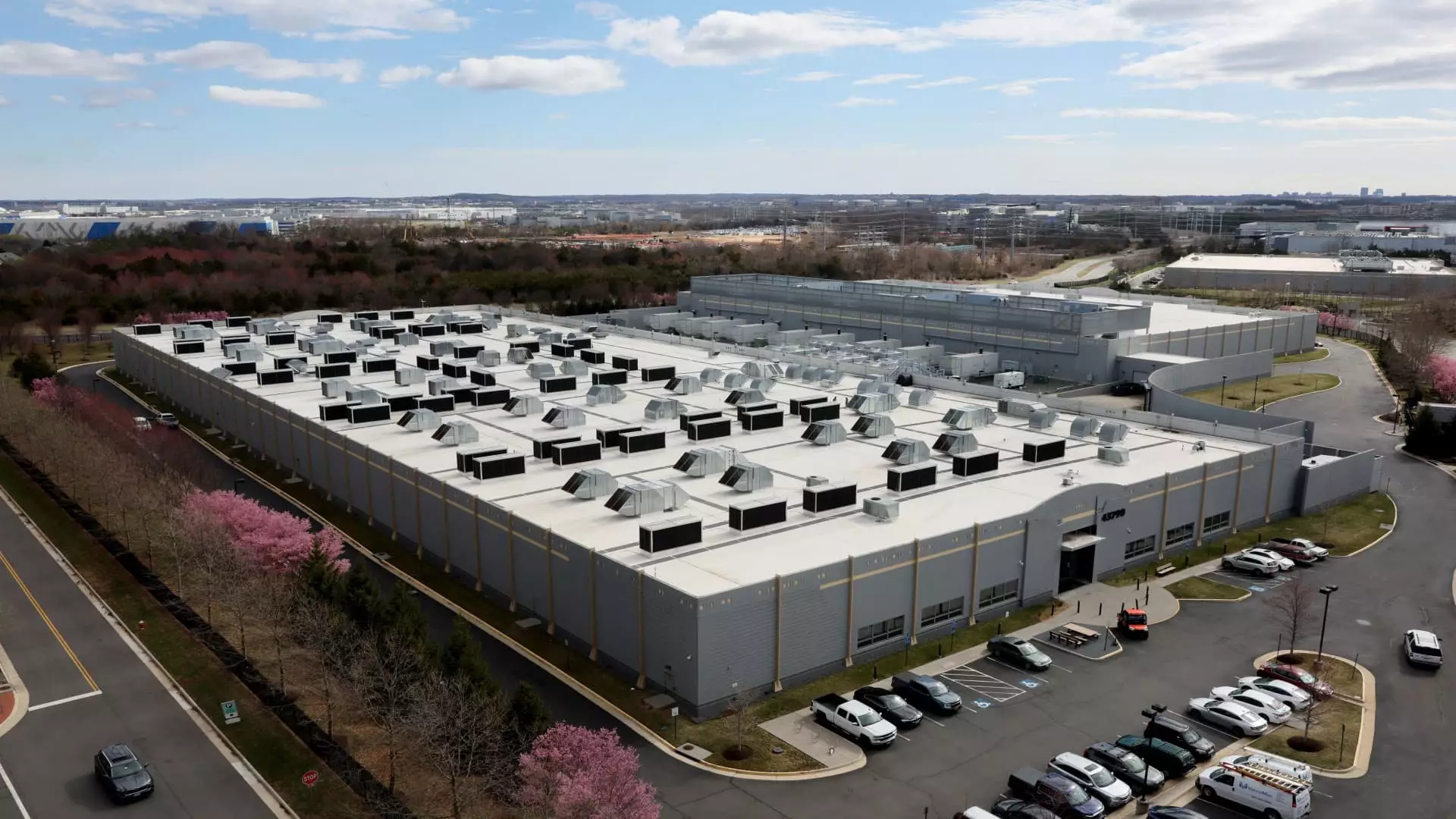In a significant development within the energy investment landscape, ADQ, a sovereign wealth fund from Abu Dhabi, has partnered with Energy Capital Partners (ECP), an American private equity firm, to form a groundbreaking $25 billion investment partnership. This collaboration is aimed at bolstering power generation to meet the burgeoning energy needs of data centers and other energy-intensive sectors in the United States. Announced on a Wednesday, this deal reflects a strategic alignment between the two firms, designed to cater specifically to the demands of hyperscale cloud companies and industries reliant on uninterrupted power supply.
The emphasis on reliable, high-quality power sources cannot be overstated: as AI and data-centric operations surge, the requirement for localized, dedicated power plants becomes a fundamental priority. This partnership underscores a commitment to ensuring that infrastructure will be in place long-term to facilitate the growth of technology and data services, which are vital to the modern economy.
Transforming Energy Landscape
The joint venture anticipates deployment of more than $25 billion into 25 gigawatts of energy projects. This ambitious initiative focuses on a mix of greenfield developments, brand new constructions, and enhancements to existing infrastructures. Such extensive investments signal a robust acknowledgment of the shifting energy paradigm, especially as the demand for electricity in the U.S. seems poised for a pronounced uptick after years of stagnation. Whether driven by the needs of electric vehicles, expanding data centers, or the effects of climate change that result in hotter summers, the projected boom in energy requirements sets a compelling backdrop for this monumental partnership.
ADQ’s stature as a sovereign wealth fund—cumulatively overseeing assets worth $249 billion—paired with ECP’s claim as the largest private owner of power generation assets in the U.S. positions this partnership as a formidable player in the energy sector. In a landscape shaped by their respective experiences and investments, both entities bring a wealth of expertise to address the pressing challenges of energy supply in the coming years.
The Data Center Dilemma
The urgency of this deal becomes even clearer when considering the rapid growth of data centers. According to a report by the U.S. Department of Energy, data center load growth has skyrocketed over the last decade and is expected to continue its ascent, with projections indicating a doubling or tripling of total electricity usage by 2028. The staggering numbers equate to a potential explosion in power consumption—over one-third of the total additional electricity demand in the U.S. by 2026 will originate from the data center sector alone. This rapid expansion is not merely an abstract statistic; it has real implications for power supply continuity and reliability.
Such heavy reliance on data centers raises pertinent questions about sustainability and energy source diversification. As significant corporations like Microsoft, Google, and Amazon spearhead developments in artificial intelligence, the burgeoning infrastructure necessitates a commensurate investment in energy capabilities that can keep pace with technological advancements. The global picture is no less daunting, as worldwide electricity consumption in data centers could soar to a staggering 1,000 terawatt hours by 2026, a notable increase from the 460 TWh recorded in 2022.
The UAE’s Strategic Vision
Contextualizing this ambitious initiative requires considering the broader geopolitical landscape. The UAE, in its quest for economic diversification away from hydrocarbon reliance, has been actively pursuing investments in emergent technologies, particularly artificial intelligence and energy transition solutions. Sheikh Tahnoon bin Zayed Al Nahyan, chairman of ADQ and UAE national security advisor, has recently engaged with influential leaders and tech giants in an effort to fortify ties with the U.S. and acquire cutting-edge technologies.
The UAE’s proactive investment strategies are clearly targeted not just at immediate gain but at securing a sustainable and self-sufficient technological future. Ventures such as the consortium formed with Microsoft and BlackRock, aimed at injecting over $30 billion into AI initiatives, further illustrate the UAE’s commitment to becoming a central player in innovation and technology. This partnership with ECP may well be seen as part of a larger narrative in which the UAE is positioning itself as a key hub for AI advancement and energy production in the global landscape.
The $25 billion partnership between ADQ and ECP not only exemplifies a forward-thinking strategy to address the immediate energy needs of an evolving tech industry but also mirrors larger global trends in energy production, technological development, and international cooperation and investment. As this partnership unfolds, the reverberations will be felt across sectors long after the initial investment is made, shaping the future of energy and infrastructure as we know it.


Leave a Reply